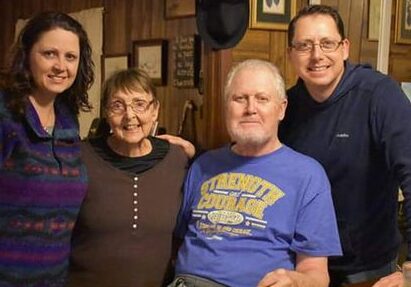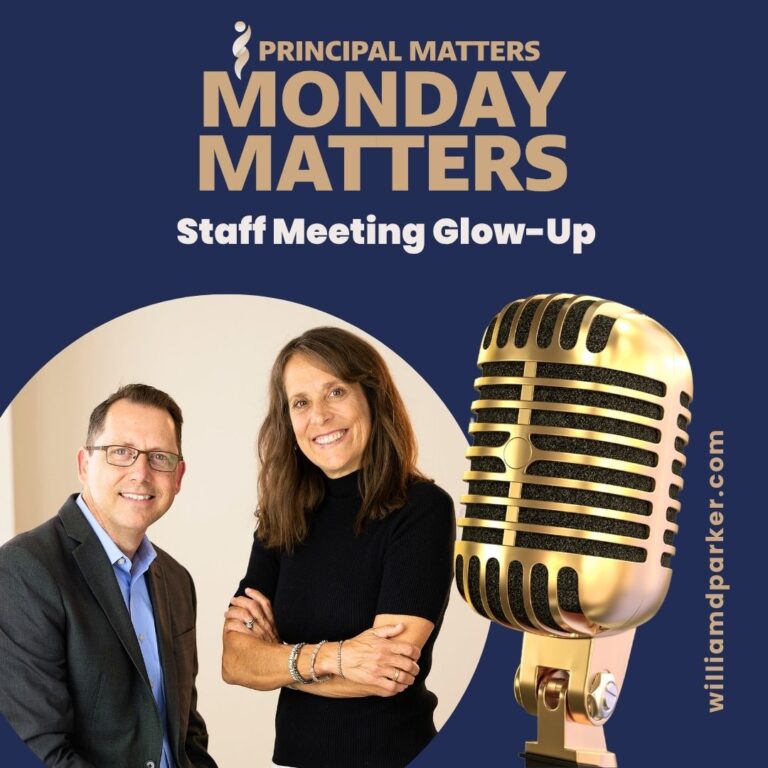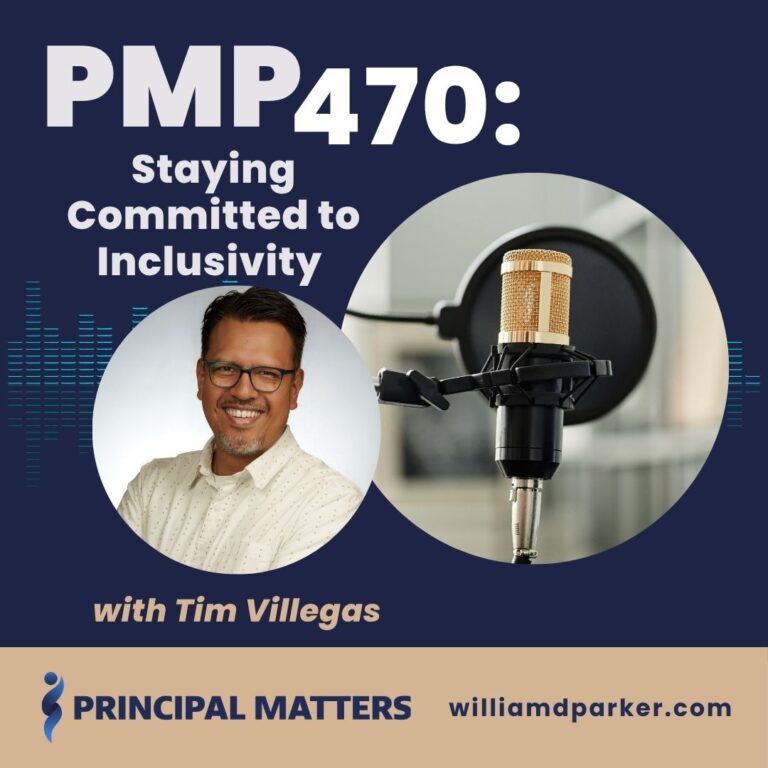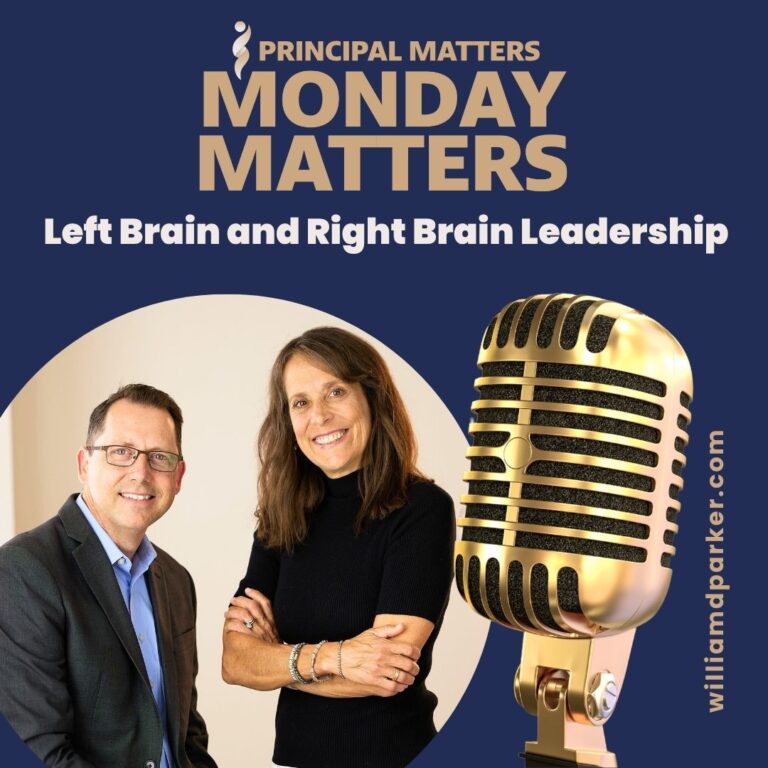Podcast: Play in new window | Download
This year’s pandemic has made it difficult to see my parents as they live a long distance and are both in a vulnerable age group. Instead of posting about education this week, I want to share some personal reflections here instead. It was Sunday, October 27, 1963, 57 years ago at the time of this writing.

My mother, Polly Kathryn Carter, with wispy brown shoulder length hair in her Sunday dress, stood 5 feet 2 inches tall, assuming she was wearing heels. Standing beside her my dad, Jesse Darden Parker, stood a foot higher, 6 feet, 2 inches of sunbrowned muscle. He had tight curly black hair, high on top and short on sides and back. He wore a suit jacket, a dress shirt with a straight black tie. When they posed for a photo, J.D.’s tie clip rested just above Polly’s collarbone.
Polly had wanted a church wedding, but when her father had died of leukemia a year before, the hopes were lost of having him walk her down the aisle. So after J.D. had ended his work on the farm that weekend, they had driven across the Tennessee state line into Kentucky and then across two rivers, the Ohio and the Mississippi till they came to Cairo, Illinois. At the time, it was a bustling river town where travelers could find hotels and gambling, bootlegged whiskey and plenty of churches to choose from.
At the first church where they stopped, they found a minister who eyed them suspiciously. He interviewed the couple for a few minutes and told them they would have to find another minister if they wanted to elope. He didn’t give them a reason. But J.D. nursed an uncomfortable feeling that his dark skin and curls gave the minister the false impression he would be performing an interracial marriage – a union that would still be illegal in many Southern states until 1967.
The couple moved down the street to another church. The minister there took them to his house. There in the presence of his wife as witness, he performed the small ceremony. I doubt my parents knew that on the same day they were married on Sunday, October 27, 1963, on the other side of the globe, U.S. Ambassador Henry Cabot Lodge, Jr. stationed in Saigon, received what historians would later call the “green light” telegram. The telegram message, approved by U.S. Under Secretary of State George W. Ball would authorize Lodge to not oppose a coup against South Vietnam President Ngo Dinh Diem.
When they arrived back at the farmhouse in west Tennessee where my dad lived with his foster parents, the older couple welcomed the new couple home. The guest bedroom became theirs for the next few months as the Old House across the field was prepped and old furniture located for their first home together.
The “Old House” as it was called had been built before the turn of the century. My mother’s grandparents had once owned it. Her mother was raised there. But during the Great Depression, her family had lost the home. Later when my father began working on the farm of his then foster family the Bowdens, the Bowdens owned the land and the Old House that once belonged to my mother’s family.
Now in a circle ending for my mother’s family history, the Old House became the first place where my parents began their first years together. Less than one month after their marriage, on November 22, 1963, my parents celebrated my father’s 23rd birthday. That same day, John F. Kennedy was assassinated in Dallas, Texas. The nation and world stood still. And my dad drove tractors, fed cattle and started a family. By 1967, they had two boys and one on the way.
My dad had been enlisted in the U.S. Navy, at age 17, in 1957 when he had dropped out of high school to join the military. His tour of duty had taken him to Japan, and he was eager to return to farming when his enlistment had ended. As a young farmer with a few years of seeing the world, he was ready to settle down when he started dating Polly Kathryn.
When I was a boy, I found a notebook where my mother had written the story of dad’s decision to reenlist in the Navy. It was sometime in late 1966 or early 1967. My dad had attended the funeral of a neighboring farmer. When he came back home to the Old House, she could hear his shoes clicking on the hardwood floor as he made his way to the back bedroom. When she stepped in, he was loosening his tie and unbuttoning his dress shirt.
He stood there a minute, holding his loose tie in his hand.
“We stood around the grave today, and I looked at the faces of the other men,” he said. “Many of them old and weary. Most have never left their farms or this county even. I kept asking myself, ‘Is this where I want to spend the rest of my life?’”
He raised his head and looked at Polly.
“I feel like there must be something more for us. I think it’s time for me to reenlist.”
That year my father reenlisted in the U.S. Navy and took the young family to San Diego, California. By 1967, the U.S. involvement in the Vietnam war had sent so many U.S. troops into combat that President Lyndon B. Johnson signed the Selective Service Act, which prompted thousands of young American men to either destroy their draft cards or leave the country to avoid the draft. My dad never explained to me whether or not he was concerned about the draft when he re-enlisted in 1967. The way he told it, it was just time for a change.
During this new tour of duty, he was a young husband and father. My third brother would be born in July 1967 at the San Diego Naval Hospital, one month after the assasination of Robert Kennedy at the Ambassador Hotel in Los Angeles. In another horrific moment for the nation, that spring, on April 4, 1968, Martin Luther King, Jr. would be assassinated in Memphis, TN. Nine months later, I was born in January 1969 at the same Naval hospital as my older brother. And my sister would follow 14 months later.
By this time, my parents owned a home in La Mesa, California. My father was stationed on several ships as an electrician’s mate, including a naval torpedo retriever. Little did I know that four short years later, we would be returning back to West Tennessee as my father was ready for another change.
In 1974, President Nixon announced his resignation. At the same time, my father purchased 120 acres just southeast of the Old House, and he and his brother built a basement with a flat roof on top. It became our home for the next six years. My dad framed walls, ran the electricity through our home, dug and installed a sewage tank, plumbed the kitchen and bathroom, and dug the well that eventually ran water into our home. Dad worked odd jobs as an electrician until he landed a permanent maintenance position at a small engine manufacturing factory in Paris, Tennessee.
By 1980, Gerald Ford and Jimmy Carter had served their terms, and Ronald Reagan had won his first Presidential election. That same year, my father hired builders who erected a two-story home onto the basement structure. The new house had five bedrooms and three bathrooms. We moved in when I was eleven years old, and I thought I was one of the luckiest boys in the world.
Today as I’m writing this my parents are celebrating 57 years of marriage. Over 57 years, they have raised six children. They endured another tour of duty when my father reenlisted again in the U.S. Navy during the late 1980’s and moved us to New York, Virginia, and then back to Tennessee to start a business and then retire. They have been blessed with fifteen grandchildren and three great grandchildren. They have grieved the loss of their oldest son, endured my mother’s life altering brain surgery and recovery. They have suffered through my father’s terrible stroke and learned to live with home nurses and new medications.
While I was growing up, my parents kept us moving in a circle between our farm in West Tennessee and the outside world. They showed us New York City. We stood atop the Empire State Building and saw the awe inspiring cityscape marked by the Twin Towers. We rode waves and built sand castles in Virginia Beach. We drove the beautiful Appalachian Mountains. We sat on the shores of Chesapeake Bay and watched the sky explode with brilliant red, white and blue sparks – the flaming fireworks of an Independence Day.
We worshipped together, sang together, and did life together. When dad returned to Tennessee in the late 80’s to start his own boat marine salvage business, I began diving for mussel shells in the Tennessee River area on the Kentucky Lakes. Dad taught me how to back a boat trailer, maintain my equipment, market my shells, and save money for my first car. Mom taught me how to pray for God’s direction, treat others with dignity and as equals, and pursue my dreams.
Little did I know then that we were living through anything historical. I barely remember the elections of Jimmy Carter, Ronald Reagan or George H.W. Bush. By the time I went to college, politics was still just the background noise for events we faced each day at work, school, church and life. By the time Bill Clinton came onto the scene, cable news was also making its debut. For some reason, politics began making more noise. I began teaching high school, and later became a school principal. As we lived through George W. Bush years and the Presidency of Barack Obama, my mom and dad slowly unplugged from the rest of the world on their farm in West Tennessee.
This month my mom turned 80 and my father will be 80 in November. They live in the same two-story house built 40 years ago. It’s much older now and so are they. My mom’s brown hair has actually stayed mostly brown. Although she is a few inches shorter now, her hazel green eyes still show the spark and laughter of her youth. My father’s black curls have turned to locks of white. He wears a beard like Santa Clause now, and he moves much slower and often with a walking stick.

This brief account doesn’t give nearly enough context for why I respect and admire them both so much on their 57th wedding anniversary.
I have failed to tell the stories of watching my mother walk barefoot through our pastures so she could feed our Jersey cows and provide us with gallons of fresh milk – pails of brimming, frothing white she would carry to the house for skimming cream to make into butter.
I have failed to recall how my father would sit with us at the end of a long day while we children piled onto our beds to listen to him read fairy tales or sing with us.
I have not told the stories of how he fell the trees and taught us to split and carry the wood that heated our home each winter. Or the meat he would salt and cure in Spring. Or the red potatoes we planted in early summer and later gathered in the soft warm soil of late summer. Or the nights he would erect his telescope and show us the craters of the moon or the red of Jupiter in the milky night sky.
When I was a little boy, I remember my dad always wore a suit on Sundays. He would stand at his mirror and tie a Windsor knot. I would stand by and imagine what I might look like someday in a suit and tie. One day I asked him, “Daddy, when you die someday, can I have your suit?” He laughed and said, “Sure, hot-shot, if you’re big enough by then.”
For what it’s worth, I have never grown as tall as my dad. I can honestly say I have never been and never will be big enough to inherit one of his suits. In fact, it is safe to say, I will never be big enough to fill the shoes of either of my parents. But I am thankful for the opportunity to have watched some of the steps they’ve taken in fifty-seven years together.




